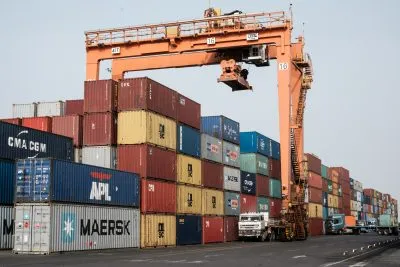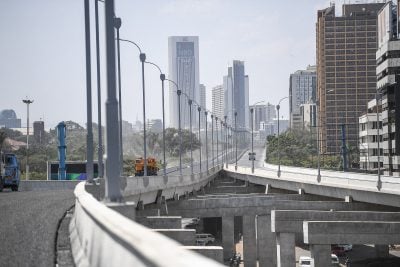Nigeria’s hopes of boosting oil revenues may rely more on ending the current conflict in the Niger Delta than on a recovery in oil prices. Although the country has the potential to yield 3m barrels a day, output slumped to just 1.69m barrels a day in the second quarter of this year because of an upsurge in militant attacks on oil industry infrastructure.
This exacerbated the effects of oil theft and other forms of petrocrime. An opportunity for a settlement has emerged but could be just the latest negotiating tactic by the new militant kids on the block.
Deepwater oil projects are expensive. Over the past decade, Abuja has been banking on the development of deepwater fields to compensate for the lack of shallow water and onshore production in the Niger Delta.
Yet low oil prices have seen deepwater projects shelved or delayed, putting even more pressure on the Delta to generate revenue. The region is the heart of the Nigerian economy; it provides the money that lubricates the rest of the Nigerian economy; and the Nigerian economy is one of the most important cogs in the African economy.
The security situation in the Delta had improved following the 2009 Presidential Amnesty Programme. Thousands of militants handed in their arms in return for about N65,000 a month, which was worth about $400 in 2009, while some of their leaders won security contracts to protect pipelines and other infrastructure.
It could easily be argued that these payments and contracts were essentially bribes paid by the government but there is no doubt that they were effective. The oil theft continued but the volume of damaging attacks on pipelines fell sharply.
However, the new Nigerian government of President Muhammadu Buhari has cut the monthly stipends by 70% since coming to power and the president has said that they could be halted completely within two years. Some of the security contracts have been revoked following allegations of corruption.
Crippling attacks
The timing of the recent upsurge in attacks certainly seems to be connected to the changes at the top of Nigerian politics and the phasing out of the amnesty money. There could also be a political angle to the violence.
President Buhari has pledged to ensure that the oil money is shared out “fairly” between Nigeria’s 36 states and the federal government. Many in the Delta feel that this is an attempt to transfer more wealth from the south to the north of the country, despite the fact that the Delta sees very little financial benefit from the oil that it produces.
Given that most people in the Delta voted for Buhari’s opponent, Goodluck Jonathan, some in the region believe that they are being punished by a northern, Muslim president. A new group, the Niger Delta Avengers (NDA), launched attacks on pipelines transporting gas from the Delta to Lagos and Abuja in January and February, causing power plants to shut down.
This was followed by a string of devastating bomb attacks on oil pipelines operated by the state oil company, the Nigerian National Petroleum Corporation (NNPC), Shell, Chevron and Eni, plus oil terminals. The attacks left 700,000 barrels a day of production capacity shut in in September.
The attacks have done enough damage to tip Nigeria into recession and caused the NNPC to record a loss of N26.51bn ($84m) in June. The NDA’s demands include negotiations over the distribution of oil revenues, autonomy for the Delta and the ownership of Delta oil assets by people from the region.
It is uncertain whether this last demand is for ownership by individual Nigerians living in or born in the Delta, or common ownership. The group has previously warned that it will declare the Niger Delta independent on 1st October this year and fight to maintain this independence.
It has also used the name “Biafra” in its statements, a highly politicised term in Nigeria as a result of the 1m people who died in the 1967–70 Biafran war for independence of the southeast corner of Nigeria, including the Niger Delta.
In a statement in early September, the NNPC said: “If the current situation remains unchecked, it could lead to the crippling of the Corporation and the nation’s oil and gas sector, the mainstay of the Nigerian economy. Insecurity is threatening production and damaging the Niger Delta environment. There is the urgent need for government and security agencies to refocus as well as engage the various host communities … toward finding a lasting solution to the present unrest.”
A possible settlement?
Hope of a resolution emerged in late August when the NDA started a ceasefire to enable talks with the government to begin. A spokesperson for the group announced: “We are going to continue the observation of our unannounced cessation of hostilities in the Niger Delta against all interests of the multinational oil corporations. We are going to support any collective/negotiation team … to engage with the federal government of Nigeria, representatives from the home countries of all multinational oil corporations and neutral international mediators.”
However, other splinter militant groups in the region have continued to carry out intermittent attacks on oil industry facilities. The Nigerian military increased its presence in the area in late August but this triggered retaliatory attacks from other groups, including the Niger Delta Greenland Justice Mandate, which blew up the Ogor-Oteri oil pipeline.
It remains to be seen whether the NDA is serious about reaching a settlement. It is just one in a long line of militant groups that have fought against the government, military and oil companies by attacking oil industry targets. Each one is born out of previous incarnations, sometimes with some of the same personnel.
Only a long-term solution to the various problems of the Niger Delta – and indeed of Nigeria – is likely to end the violence. Poverty, pollution, corruption, political disempowerment and a lack of economic opportunity create a culture of dissatisfaction within which petrocrime and militancy can prosper.
Neil Ford
Want to continue reading? Subscribe today.
You've read all your free articles for this month! Subscribe now to enjoy full access to our content.
Digital Monthly
£8.00 / month
Receive full unlimited access to our articles, opinions, podcasts and more.
Digital Yearly
£70.00 / year
Our best value offer - save £26 and gain access to all of our digital content for an entire year!
 Sign in with Google
Sign in with Google 



